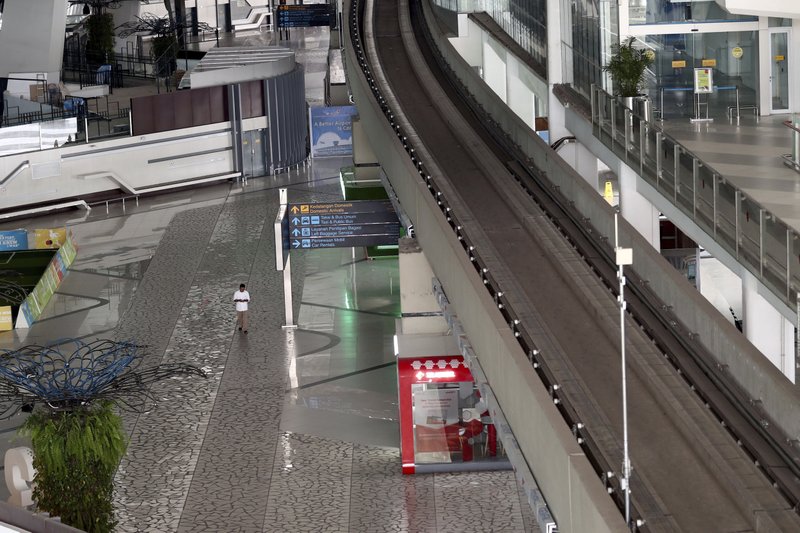JAKARTA, Indonesia -- Muslims worldwide began Ramadan on Friday with dawn-to-dusk fasting, but many will have to forgo the communal prayers and family gatherings that make the holy month special, as authorities maintain lockdowns aimed at slowing the coronavirus pandemic.
Ramadan is usually a festive season, with the daylong fast followed by lavish meals and evening get-togethers. But this year many people are confined to their homes, travel is heavily restricted and public venues like parks, malls and even mosques are shuttered.
Many people also are weighed down by anxiety about the pandemic and widespread job losses resulting from the worldwide shutdowns.
"This is too sad to be remembered in history," said Belm Febriansyah, a resident in the capital of Indonesia, the world's most populous Muslim nation.
[CORONAVIRUS: Click here for our complete coverage » arkansasonline.com/coronavirus]
Jakarta is the epicenter of the outbreak in the country, which has reported more than 8,200 infections and 689 deaths as of Friday according to Johns Hopkins University. Passenger flights and rail services have been suspended, and private cars are banned from leaving the city.
Mosques in Indonesia's deeply conservative Aceh province were packed, however, after its top clerical body ruled that it is not a "red zone" area and that prayers could continue. The province is governed by Islamic law under an autonomy agreement.
Muslim-majority countries began imposing widespread restrictions in mid-March, with many canceling Friday prayers and shuttering holy sites. Saudi Arabia has largely locked down Mecca and Medina and halted the year-round umrah pilgrimage.
[Video not showing up above? Click here to watch » https://www.youtube.com/watch?v=5hvv0842V3c]
The Saudi-led coalition said it would extend a unilateral cease-fire with Yemen's Iran-aligned Houthi rebels through Ramadan. Fighting has continued, with each side blaming the other. The Houthi military spokesman, Yehia Sarea, accused the coalition of several violations on Friday, including 35 airstrikes, mostly on the strategic central province of Marib.
Muslim-majority Malaysia extended its own lockdown by two more weeks to May 12, although its daily virus cases have dropped significantly in the past week. The country now has 5,691 cases, with 96 deaths as of Friday.
Malaysia's Prime Minister Muhyiddin Yassin said in a televised speech on the eve of Ramadan that the "jihad," or holy war, against the pandemic has shown results but must continue.
Malaysia, along with neighboring Singapore and Brunei, has banned popular Ramadan bazaars, where food, drinks and clothing are sold in congested open-air markets or roadside stalls. The bazaars are a key source of income for many small traders, some of whom have shifted their businesses online.
In Pakistan, Prime Minister Imran Khan has bowed to pressure from the country's powerful clerical establishment and allowed mosques to remain open, even as the number of new cases has recently doubled to between 600 and 700 each day. Some clerics have ordered their followers to pack into mosques, saying their faith will protect them.
Pakistan's southern Sindh province, however, banned Ramadan prayers after the Pakistan Medical Association pleaded with authorities to close mosques nationwide.
[Gallery not loading above? Click here for more photos » arkansasonline.com/425muslim/]
A key element of Ramadan is charity, with the fast partly intended to cultivate empathy for the needy. But many countries have imposed bans on communal meals, forcing charities to organize home deliveries instead.
In Turkey, authorities have banned the tradition of setting up tents and outdoor tables to provide free meals to the poor. It also has forbidden drummers from going door to door to wake people up for the pre-dawn meal in exchange for tips -- another Ramadan tradition.
Information for this article was contributed by Eileen Ng, Mohammed Farooq, Aijaz Hussain, Zeynep Bilginsoy, Mehmet Guzel, Tameem Akhgar and Joseph Krauss of The Associated Press.
A Section on 04/25/2020
